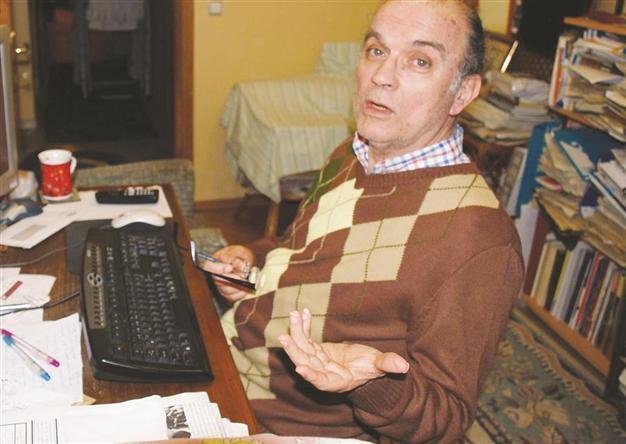Journalism a hard job for minorities
ISTANBUL - Hürriyet Daily News

Apoyevmatini editor-in-chief Mihalis Visiliadis complains about pressure on press.
Editors-in-chief of minority newspapers in Turkey have told a visiting EU mission during an Istanbul meeting on Feb. 27 that they were facing self-censorship problems along with economic difficulties.
Present at the meeting were EU Delegation to Turkey First Counselor Michael Miller, Political Officer of the European External Action Service Sema Kılıçer and the editors-in-chief of daily Greek newspaper Apoyevmatini, Armenian dailies Marmara and Jamanag, Armenian weekly Agos, Jewish weekly Şalom, and Syriac monthly Sabro.
“Freedom of expression and press censorship in Turkey were discussed during the meeting. I spoke on the causes that lead the censorship of the minority press, underlining that minority newspapers are self-censoring themselves due to their fears,” Mihalis Vasiliadis, the editor-in-chief of daily Apoyevmatini, told the Hürriyet Daily News after the meeting.
“Another kind of censorship mechanism is the one imposed by the dominant groups of the minority communities. Since we are financially dependent on them, we cannot release critical news reports,” Vasiliadis said.
Vasiliadis also said he still did not have a state-issued “yellow press card,” although he has been a journalist for 30 years. He mentioned the problems of minority journalists with regard to holding press cards during the meeting.
“Many journalists are currently in custody. The Prime Minister says they did not have any press cards and were arrested for engaging in terrorist activities. I reminded [them during the meeting] that no one could guarantee that we wouldn’t be treated in the same way if we were arrested,” Vasiliadis said.
“The State’s Press Institution said they would release an official announcement for the minority newspapers [to obtain their press cards]. However, it hasn’t been done yet,” he added.
Meanwhile, Tuma Çelik, editor-in-chief of the monthly Sabro, said minority issues were also handled in the context of Turkey’s EU process. “I said at the meeting that we were regarded as foreigners although we are citizens of the Turkish Republic. I underlined the point that our problems should be solved not because of the EU process, but because we are citizens,” Çelik said.
